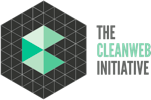What does it take to succeed in the professional world today? The EQ vs IQ debate has been around for a long time. They were buzzwords since we were children, and they are still as highly discussed and emphasized nowadays, even as they were before. What are these measures exactly, and what do they contribute to the workplace?
What is IQ?
An intelligence quotient or IQ is the measure of one’s aptitude to think logically and solve cognitive problems. It also includes the person’s capacity to have an astute memory and understand abstraction.
Furthermore, it can indicate a person’s proficiency in language comprehension. It is usually determined by a battery of standardized tests that have been rigorously developed.
Individuals who take it are assigned a number that signifies their place within a normal curve. Though the practice of measuring one’s IQ has contributed a lot in the area of job placement, many studies have found that it is just one of the many factors that determine success in the workplace.
What is EQ?
Emotional quotient or EQ deals primarily with the individual’s ability to discern, regulate, and evaluate their emotions and of others. It also involves their capacity to empathize and be socially adjusted. These traits have garnered a lot of attention for their contribution to a good working relationship, conflict management, and resilience amidst changes and failures.
EQ can also be measured using standardized tests, but more emphasis is given on the person’s self-reports and actual demonstration of these traits. Research has shown that those who have high EQ are better managers and leaders in the workplace.
The verdict in the EQ vs. IQ debate:
Without a doubt, cognitive intelligence plays a huge role in task accomplishment and quality output. Any worker will find it hard to thrive if he cannot solve problems on his own or make decisions rationally.
However, the business world is now acknowledging that the dynamic environment in the workplace needs more than just technical skills and intellectual understanding.
Since success is often built on human interaction, it makes sense to give focus on skills related to it. Academic achievement and certifications can get a person hired, but a poor social ability can get him fired.
In order to thrive, many businesses are now looking for people who can also demonstrate EQ skills such as leadership, resilience, self-awareness, social skills, motivation, and self-regulation.
They are also investing more training in these aspects to improve the situation in the workplace. Soft skills have now become indispensable.
While upbringing and experience have a huge influence when it comes to having these interpersonal and intrapersonal skills, anyone can develop them.
The best investment that you can make is an investment in yourself. Whether you are a CEO, designer, entrepreneur, software engineer, or a freelancer, you can improve your professional and soft skills. Aside from having the opportunity to climb the corporate ladder, you will also become a better person in the process, which is very much rewarding in itself.



